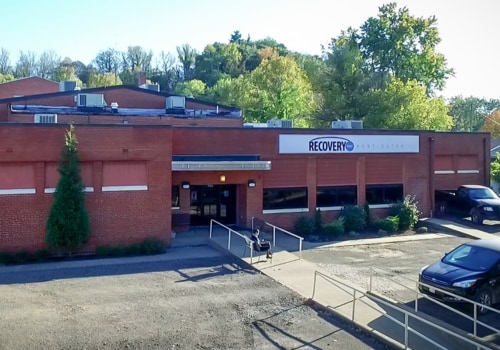To effectively give non-clinical recovery support to personsin recovery or seeking recovery, a Peer Recovery Coach (PRC) must have relevantlife experience with addiction and recovery, have finished specializedtraining, and be under supervision. The hallmarks of a peer recovery coachinclude experience with addiction and recovery as well as completion ofspecialized training to assist those pursuing drug or alcohol recovery.
The Recovery Coach Academy is a five-day intensive trainingprogram that equips participants with the knowledge and abilities to mentor,support, and encourages anyone attempting to begin or sustain long-termrecovery from an alcohol or drug addiction. This training is an essential partof offering high-quality, fact-based peer support, which Massachusetts isestablishing a workforce for.
As you progress in your work in the area of addiction, areyou prepared to assist others? Join The Academy for Addiction Profession tobecome a Recovery Coach. You require high school graduation or GED in additionto job or volunteer experience in the recovery support industry, such as peerrecovery, to become a recovery coach. Develop your recovery coach skills bycompleting accredited training programs. Improve Your Resume by Obtaining aState Certification or License. You can work in different parts of the countrybecause many states recognize certifications as a certified recovery coach fromother jurisdictions.
Look into the exact standards you wish to work on becausesome states may have additional credentials for recovery coaches. Obtain dailyemails with fresh job postings. You can access and verify your account usingthe email we send you. Go to the login page if you know your password. Forsomeone in recovery or trying to recover from an addiction, a recovery coach orpeer advocate can be a great assistance.
Recovery coaches to aid in the fight against addiction. It'sa difficult and rewarding job, all at once. To overcome these addictions,people require support.
What are the advantages of working as a sober coach?
The advantages of working as a sober coach are numerous anddiverse. The opportunity to assist others in overcoming addiction and achievingrecovery will present itself to you as a sober coach. You will also develop athorough understanding of the healing process and discover effective ways tohelp those who are recovering. You will be able to improve the lives of othersand contribute significantly to the cause of long-term sobriety as a result.
Furthermore, because they are in high demand, sober coachesfrequently make a decent living.
How Does One Become A Sober Coach?
There are a few things you need to do if you want to trainto be a sober coach. With the right education and training, you may be well onyour way to a rewarding profession helping others beat addiction.
1) Thefirst step to becoming a sober coach is to locate an accredited program thatprovides the required instruction and training. Finding a program that meetsyour needs requires investigation because there are numerous options.
2) Network: Once you have finished aprogram, it is crucial to network and spread the word about yourself as much asyou can. This will assist you in locating employment in the field of addictionrecovery.
3) Obtain certification: Those who want towork as sober coaches can choose from a wide variety of certificates. Bybecoming certified, you may demonstrate to potential employers that you areserious about your job and have the abilities and knowledge required to assistothers in overcoming addiction.
4) Locate a job: There are variouslocations to look for work as a sober coach, including rehab facilities,transitional housing, and private practices. It is crucial to network andspread your name as widely as you can.
5) Asa sober coach, the most crucial thing you can do is to assist others inovercoming addiction. Support, direction, and motivation are all part of this.With the right education and training, you may be well on your way to arewarding profession helping others beat addiction.
What Education and Experience Are Required to Become a Sober Coach?
The requirements to become a sober coach will differdepending on the particular coaching program you are interested in pursuing,thus there is no universally applicable answer to this question. For example,you might need to have finished a recognized addiction treatment program, havea particular amount of years of sobriety under your belt or be activelyinvolved in a 12-step recovery program.
Additionally, it is frequently beneficial for coaches tohave their own experience working with addicts since they may better comprehendthe difficulties their clients confront.
What Qualifications Are Needed to Be a Successful Sober Coach?
1. Constancy
Because it frequently takes time for people to commit tochange and advance in their recovery, patience is necessary to thrive as asober coach. Coaches must exercise patience and recognize that not everyone isready or willing to change overnight and that there is no one-size-fits-allmethod of rehabilitation.
It requires time and cares for successful coaches to buildsolid trusting relationships with their clients. For the coach and client tofeel comfortable communicating openly and honestly, trust-building is essentialin all coaching relationships. As a result, the coach is better able to assistthe client in making the required adjustments for long-term sobriety.
2. Compassion
Success as a sober coach depends on compassion. The majorityof the work done by sober coaches in assisting their clients in comprehendingand managing the emotional aspects of addiction and recovery. A successfulsober coach must possess warmth, understanding, and compassion.
3. Listening and Comprehension Skills
Being a successful sober coach requires excellent listeningand understanding skills. An excellent sober coach pays close attention totheir client's needs and ensures that they comprehend what is beingcommunicated. For clients to freely express their thoughts and feelings, theyalso aim to create a safe and encouraging environment.
By offering sympathetic support and practical advice, aqualified sober coach can assist clients in achieving long-term recovery.
4. The Capacity to Understand Others
Empathy is a crucial quality for a good sober coach. Youmust have the ability to put yourself in another person's position and considerthe world from their point of view to genuinely comprehend and assist someoneelse who is battling addiction.
5. A Non-Judgmental Attitude
Success as a sober coach depends on having a non-judgmentalattitude. It is observed that having a non-judgmental attitude encouragespeople to be more receptive to learning about sobriety and recovery.
6. The Capability to Be Supportive and Encouraging
Being a successful sober coach requires the ability to beboth supportive and encouraging. Being able to provide support andencouragement is crucial because the entire purpose of sober coaching is toassist clients in overcoming addiction. People must become sober, even thoughdoing so can be challenging.
What Training Do You Need to Become a Sober Coach?
A specialized certification course is not required to becomea sober coach. Asking around and doing research is therefore the greatestapproach to learning more.
To become licensed in addiction counseling or drug andalcohol counseling, however, is a popular choice. The majority of sobercoaching training, however, occurs in the workplace. Finding a coach, you arecomfortable working with and who has a proven track record is crucial since,like any profession, there are some good coaches and some not-so-good coaches.








Leave Reply